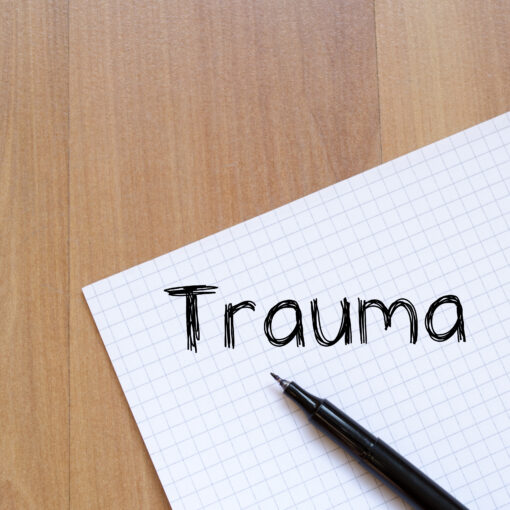Have you noticed yourself experiencing extreme amounts of stress?
Do you worry too much about things you probably shouldn’t be? Is this stress or worry keeping you from doing things you used to love? Whether you’ve recently experienced these feelings or if they’ve been around for a while, you don’t have to “just get over it”. Excessive worry that interferes with important areas of your life is not normal.
According to the National Alliance on Mental Health, almost 20% of adults and 7% of children in the United States struggle with an anxiety disorder (6). Some levels of anxiety can be normal and helpful. For example, if you weren’t worried your health, your probably would develop very unhealthy habits. Daily ‘worries’ keep us motivated to accomplish tasks and stay healthy. However, unhealthy or excessive levels of worry can lead to problematic behaviors and symptoms. When anxiety begins to interfere with relationships, school or work performance, overall health, or daily functioning, it’s time to intervene.
Normal Anxiety
As previously mentioned, some anxiety can be helpful. To some extent, anxiety keeps us safe, helps to motivate us, and drives success. Here are a few ways anxiety can be helpful (1, 2):
- You’re happy when things go well or are easy: If you are expecting a negative result, you’ll be pleasantly surprised when things go to plan or “as they should”. For example, say you are expecting to do poorly on a work presentation. Afterwards, however, you get great feedback instead. You’ll probably be extremely happy and proud because the result was better than expected.
- Builds resilience: When we are exposed to stressful situations, we can learn how to handle them. Imagine that you never faced anything difficult and then, suddenly, you have a very hard day. It would likely seem very overwhelming. Stress teaches us how to respond appropriately to negative situations in life.
- Helps us learn: Again, imagine you never encountered anything difficult in your life. How would you learn? If you weren’t anxious about a test you haven’t studied for, why would you study? Anxiety can help motivate to prepare for upcoming challenges, overcome hard situations, and help us to learn new things.
These are just a few examples of ways that anxiety can be helpful to us at times. It becomes problematic, however, when that worry becomes excessive and keeps us from doing daily activities. This may look different from person to person.
When Does Worry Become Abnormal?
Worry becomes “excessive” when it is uncontrollable and begins to interfere with daily life (3). You may worry about the health and safety of yourself or others. You may worry that people are constantly judging you. Thoughts of failure related to school, work or performance may creep in. What you worry about may be different from others, but there are some symptoms to pay attention to (3):
- Sweating, trembling or difficulty breathing
- Difficulty concentrating
- Feeling as though something bad may happen
- Experiencing nervousness
- Having trouble sleeping
- Wanting to avoid things that trigger your worry
- Developing physical health problems
- Feeling fatigued or “drained”
- Having difficulty sitting still or feeling restless
If these symptoms make it difficult to function within relationships, at school or work, or in every day settings, it can be the sign of a bigger problem. For example, you may be so worried about a test at school that you don’t sleep the night before. You can also be anxious about giving a presentation in front of coworkers. When it comes time to deliver the speech, you find yourself sweating, trembling and feel as though your throat is closing. You may also feel so worried about what others think about you, that you avoid going out into public. Anxiety can make any or all of these scenarios a reality if left unchecked.
Types of Anxiety
Anxiety disorders present differently from person to person. Here are some examples of different types of anxiety (3, 4):
- Generalized anxiety disorder (GAD): When this type of anxiety is present, a person will worry “a lot” about “everything”. Generally speaking, this worry is present in multiple areas of their life, and a number of symptoms are present.
- Panic disorder: Panic attacks involve trembling, heart palpitations, shortness of breath and feelings of doom. With panic disorder, a person may have sudden panic attacks that come unexpectedly. They can be random or a result of a trigger. Typically, people will try to avoid situations that cause panic attacks by avoiding people, places, or situations that cause them.
- Phobia-related disorders: A phobia is an extreme aversion to specific things or situations. For example, arachnophobia is a strong fear of spiders. This is more than “I don’t like spiders”. A phobia involves an immediate negative response to the object and will go to lengths to avoid them. Individuals may also have worry about encountering the objects or situations.
- Social anxiety disorder: As the name describes, social anxiety involves an intense fear of social situations. Individuals with social anxiety feel awkward or fearful of interacting with or performing in front of others.
- Agoraphobia: Agoraphobia is an intense fear of specific situations such as using public transportation, being in open spaces, or in a crowd. This fear may lead to a panic attack. Again, people will actively avoid these situations which make it difficult for them to function socially or to leave their home.
- Separation anxiety disorder: Once thought of as only being present in children, separation anxiety can occur in people of all ages. This anxiety occurs when a person is separated from their attachment figure. They worry that something will bad to happen while they are apart and will avoid being alone.
These disorders are diagnosable forms of anxiety according to the Diagnostic and Statistical Manual of Mental Disorders (DSM), which provides diagnostic criteria for a variety of mental health struggles. They can be fairly obvious or difficult to diagnose based on the number and severity of symptoms present. But what about people who may be experiencing anxiety even though they appear to have it “all together”?
High Functioning Anxiety
Some individuals may struggle outwardly with worry and anxious symptoms. Others may appear put together, successful and accomplished on the outside, but struggle on the inside (5). They may have good grades, be productive, or have successful careers. Their inner experience may be a completely different story. The success in the classroom may come with perfectionist tendencies that keep a student up all night. The accomplishments at work may include a need to constantly work due to stress over projects. People who experience a great deal of pressure to perform may worry excessively. High functioning anxiety is not a formal diagnosis. It is however, a reminder that just because someone looks like they are ok, doesn’t mean they are ok. If left untreated, an individual who functions with their anxiety may begin to have other issues – depression, diagnosable anxiety, or other mental or physical problems can result from this suppressed worry (5).
Strategies for Managing Anxiety

Anxiety is the most treatable mental health condition. There are a number of things you can do to help manage or relieve symptoms. Here are some ideas (3, 4, 5):
- Relax: Relaxing is always easier said than done. But do your best to utilize strategies that help you to feel calm. Some ideas may include reading, cleaning, baking, listening to music or meditation.
- Do something fun that you enjoy: Choose an activity that you enjoy that requires your focused attention. For example, if you love art and are doing a “paint by numbers” project, your attention will likely be focused on choosing the correct color, staying within the lines, etc. and has less of a tendency to obsess on your worry of the day.
- Stay healthy: While it may be difficult due to your anxious symptoms, do your best to sleep and eat well, exercise and get fresh air. If you are having trouble getting started in these, choose one that might be the easiest or that you used to do. These will make creating the habit easier.
- Medication: If you feel as though nothing is working for you, consider speaking with your doctor about anti-anxiety medication. They may help ease symptoms enough for you to learn other healthy coping strategies.
- Therapy: Talk therapy and other mental health treatments are beneficial in treating anxiety. If you are taking prescribed anti-anxiety medications, also engaging in therapy leads to the best outcomes. Talking with a therapist can help you sort through the ‘mess’. Therapists can teach you new coping skills as well help unravel the overwhelming. While medications can help while we take them, coping skills can last a lifetime.
Anxiety can be overwhelming, debilitating, and frustrating. While it may be easier to tell yourself to “just get over it”, that might not always be realistic. If your worry is keeping you from doing things you used to enjoy or causing difficulties, know that you are not alone. It is ok to reach out for help. While some anxiety is ok and can even be beneficial, it does not have to keep you from living your best life.
—————————————————————————————————————————————————————–

Emily offers a holistic approach to mental health and wellness. In addition to prioritizing mental well-being, she uses a strengths-based perspective to improve relationships and physical health. She is passionate about helping teens, college students, and adults set and meet realistic, achievable goals, while also meeting them where they are in their journey.
Emily was born and raised in Alaska, where she received her Master’s degree in counseling from the University of Alaska Fairbanks. After moving to the “Lower 48”, she has been working as a therapist for the past four years.
Emily has immediate telehealth appointment openings available through Wellness Matters LLC.
Read more about Emily and the other Mental Health Therapists in the “About Us” tab.
Resources/References
1. 6 Hidden Benefits of Anxiety: Can being anxiety-prone have an upside? Psychology Today. Retrieved from: https://www.psychologytoday.com/us/blog/in-practice/201701/6-hidden-benefits-anxiety. Accessed November 22, 2021.
2. Researchers Explore the benefits of Stress and Anxiety. The American Institute of Stress. Retrieved https://www.stress.org/researchers-explore-the-benefits-of-stress-and-anxiety. Accessed November 22, 2021.
3. Anxiety Disorders. The Mayo Clinic. Retrieved from: https://www.mayoclinic.org/diseases-conditions/anxiety/symptoms-causes/syc-20350961. Accessed November 22, 2021.
4. Anxiety Disorders. National Institute of Mental Health. Retrieved from: https://www.nimh.nih.gov/health/topics/anxiety-disorders. Accessed November 22, 2021.
5. High-Functioning Anxiety: What It Is, Symptoms and Treatment. Forbes Health. Retrieved from: https://www.forbes.com/health/mind/what-is-high-functioning-anxiety/. Accessed November 23, 2021.
6. Anxiety Disorders. National Alliance on Mental Illness. Retrieved from: https://www.nami.org/About-Mental-Illness/Mental-Health-Conditions/Anxiety-Disorders. Accessed November 24, 2021.




